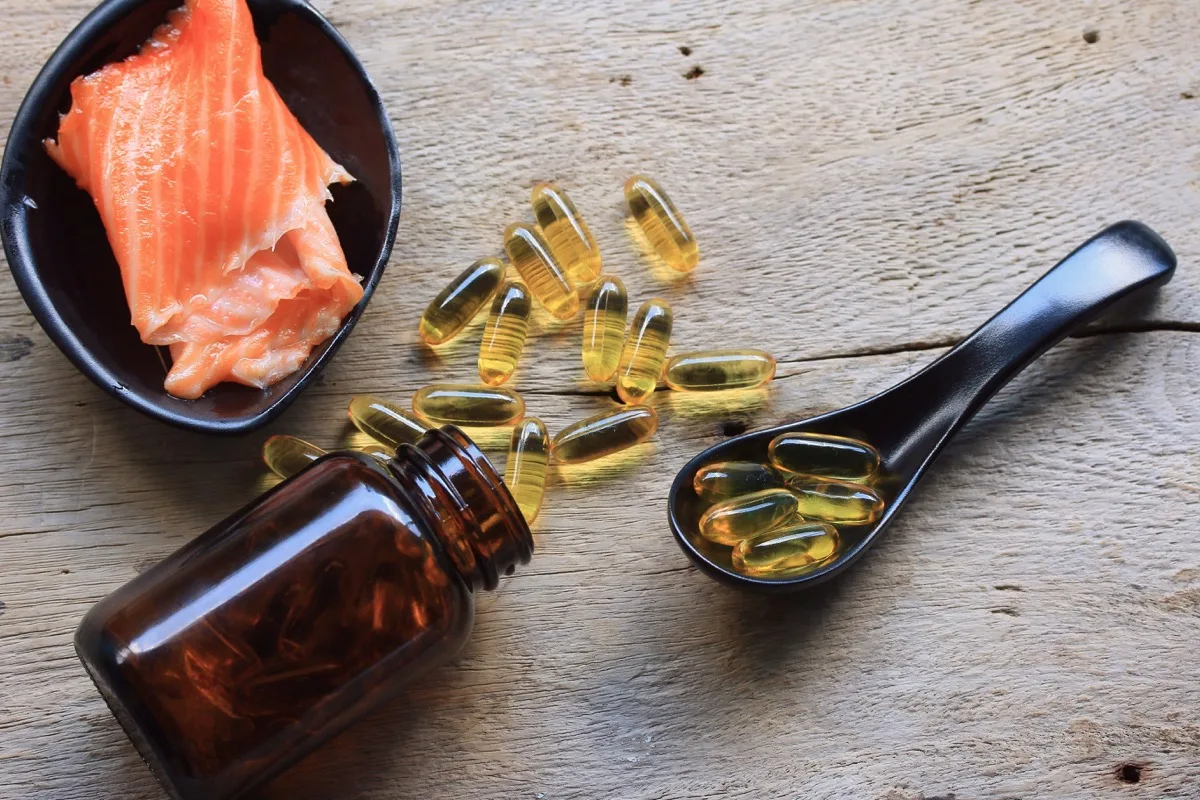The answer is definitely fish. Fish contains substances called long-chain fatty acids. Also known as omega-3 fish oils, which can actually raise the HDL levels in the blood. Eaten a few times per week, fish should supply you with adequate amounts of omega-3 fatty acids. When cooked properly If is healthy and low in fat and contains many important vitamins and minerals.
Fish or fish oil supplements are important sources of omega-3 fatty acids. Which are essential nutrients that the body needs but cannot produce on its own. Omega-3 fatty acids are crucial for maintaining good health and preventing various chronic diseases.
Here are some reasons why we need fish or fish oil supplements:
- Heart health: Omega-3 fatty acids can help reduce inflammation, lower triglyceride levels, and lower the risk of heart disease and stroke.
- Brain health: Omega-3 fatty acids are important for brain development and function, and may help reduce the risk of cognitive decline and dementia.
- Joint health: Omega-3 fatty acids can help reduce inflammation and stiffness in the joints, and may help alleviate symptoms of arthritis.
- Eye health: Omega-3 fatty acids are important for eye health and may help prevent age-related macular degeneration.
- Mood and mental health: Omega-3 fatty acids can help improve mood and reduce symptoms of depression and anxiety.
While fish is a good source of omega-3 fatty acids, not everyone eats fish regularly or can consume enough fish to meet their needs. Fish oil supplements can be a convenient and effective way to get the recommended daily intake of omega-3 fatty acids. However, it’s important to choose high-quality supplements from reputable brands. Talk to a healthcare professional before taking any supplements, especially if you have a medical condition or are taking medications.
Regulating your diet to eat less saturated and moderate amounts of mono-and polyunsaturated fats. Such as in olive oil and green leafy vegetables, may be just as beneficial as taking omega-3 fish oil supplements.
A regular consumption of olive oil is beneficial in lowering LDLs and decreasing the risk of heart disease. Avocados, olives, eggs, fish and chicken also contain mono-unsaturated fats. Although it has been advocated that some of these oils and fats are beneficial to our health (as they are low in cholesterol), they are still fattening when consumed in excess.
If we were to round up the fats, both the good and the bad, that we have so far described. We would find that one tablespoon of butter has almost the same amount of fat as one tablespoon of margarine. As would be the case with similar amounts of olive oil and sunflower oil. This is a key point to remember. While some of these fats affect cholesterol levels for better or for worse, none of these fats, even the good ones, actually makes you lose weight.
By all means use healthy mono-unsaturated and polyunsaturated fats, such as extra-virgin olive oil and sunflower oil in your cooking. But remember to use them sparingly as they do add extra fat and energy to your diet. As men and women respectively use 60 grams and 41 grams of fat each day of which 12-17 grams is essential fatty acids, then the rest of the fat should come in the form of ‘good’ fats.


